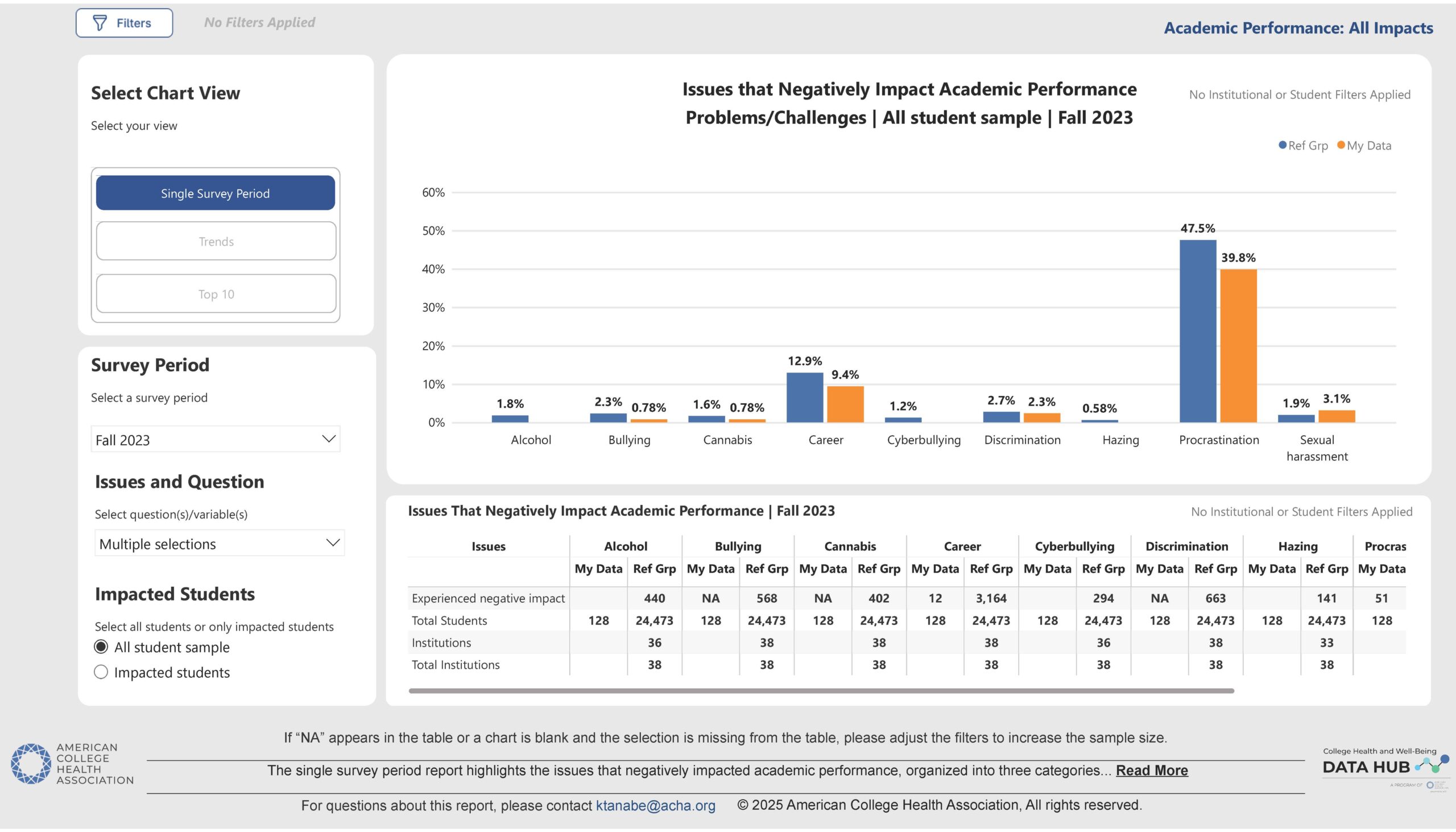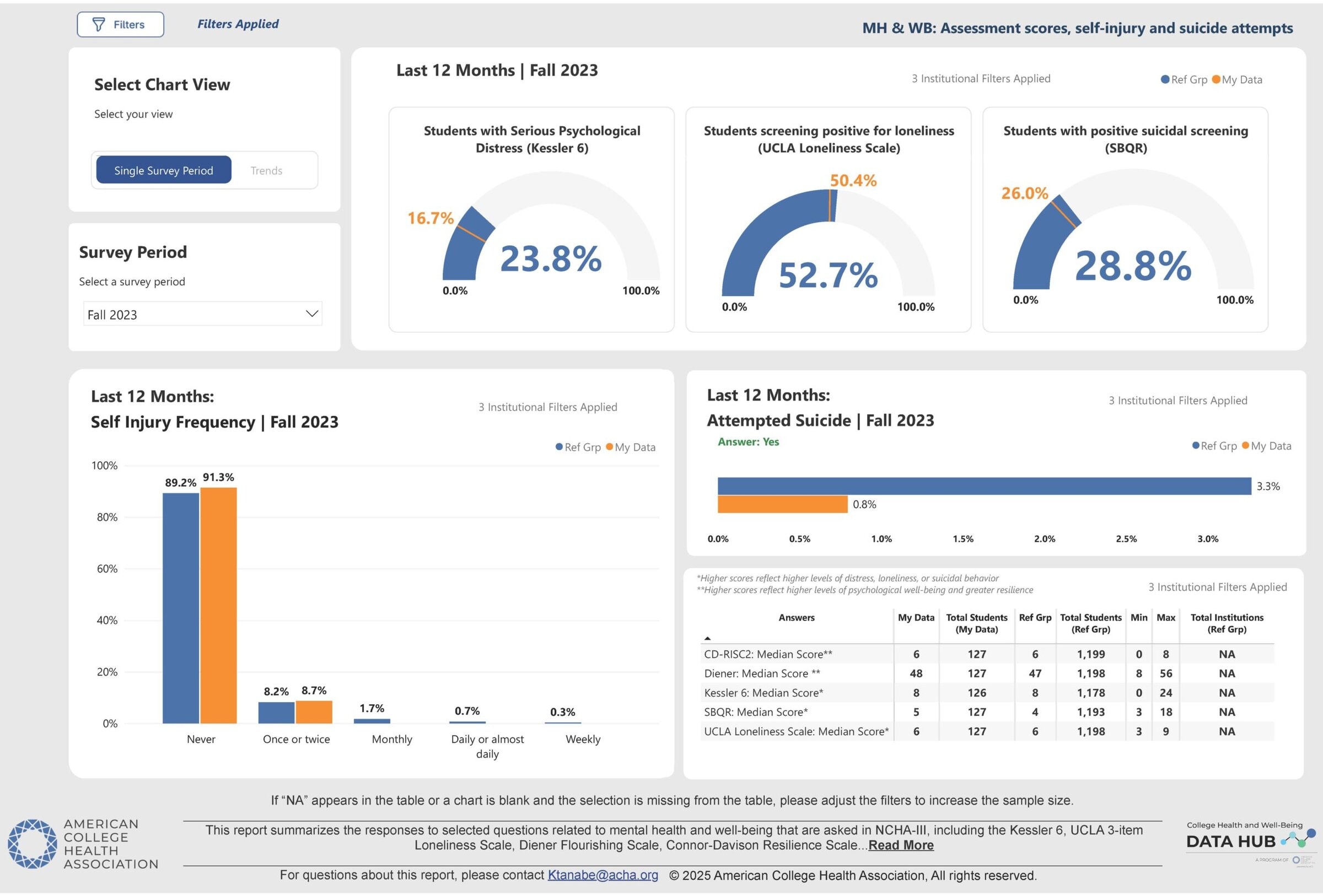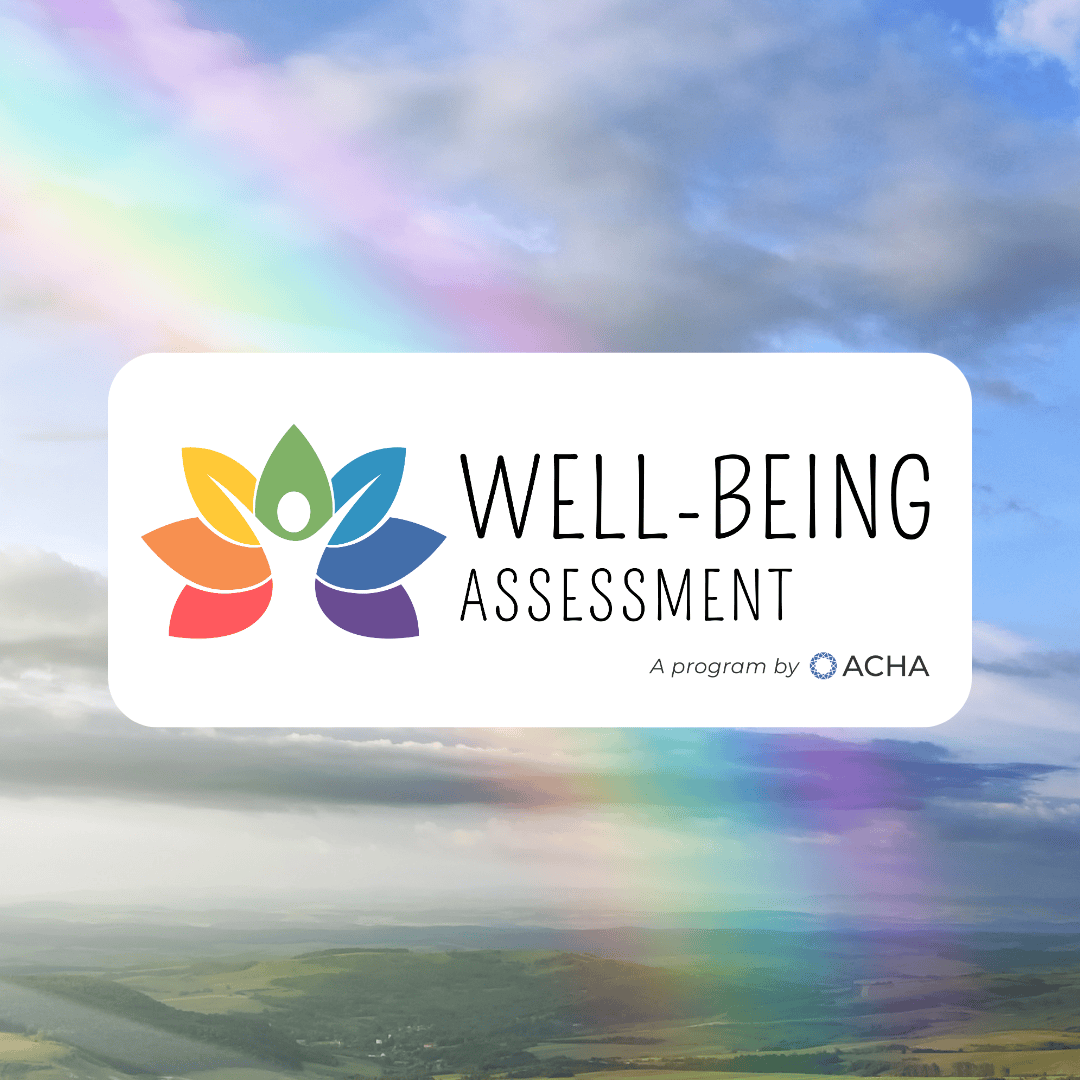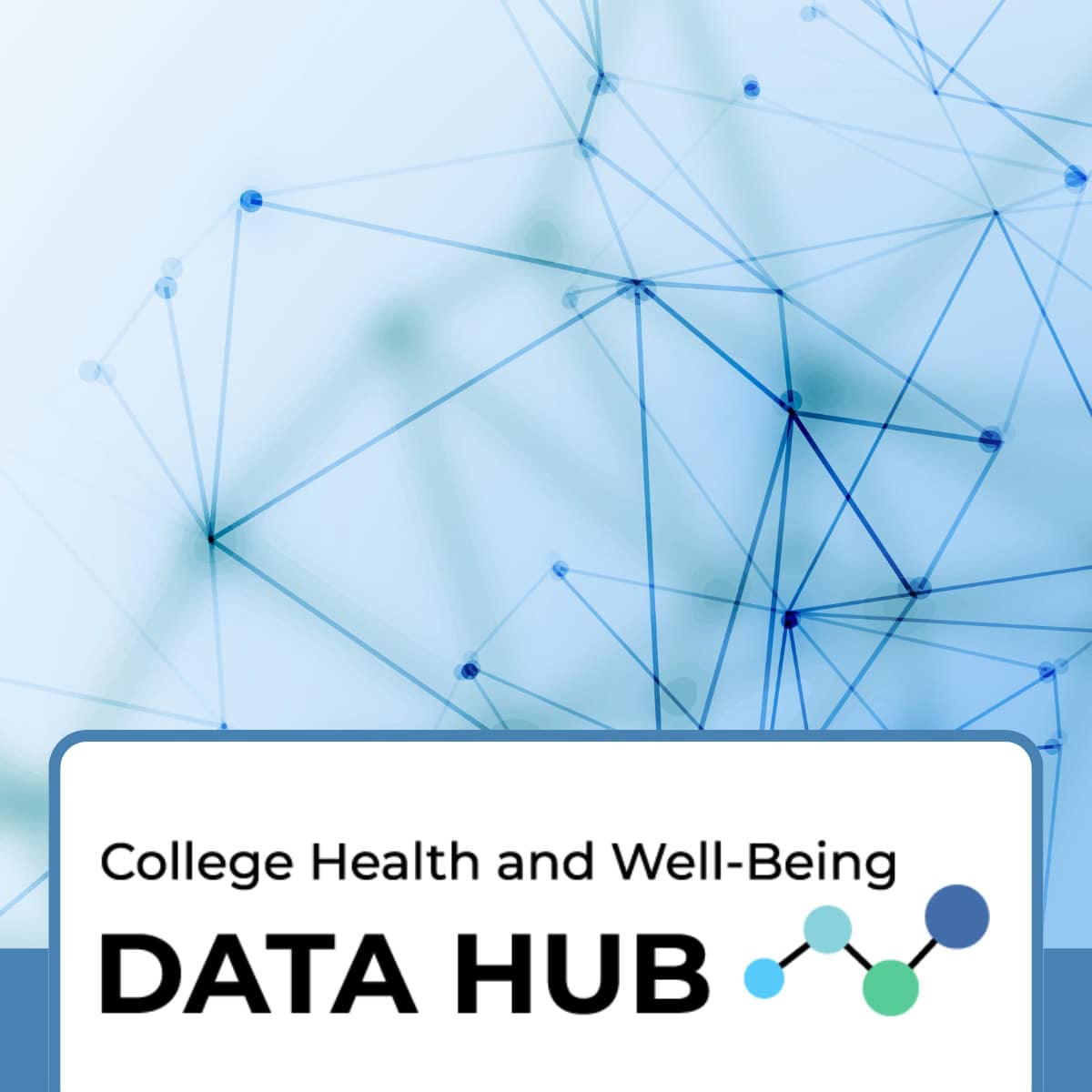The ACHA Data Hub now includes NCHA data from fall 2019-spring 2025, giving NCHA participants a major advantage
In an era defined by complex student health challenges—from unprecedented mental health demand to evolving substance use patterns—college and university health professionals can reap immense benefits from having reliable, actionable data to effectively allocate resources and prove the value of their wellness initiatives.
The solution lies in the ACHA College Health and Well-Being Data Hub, which leverages the comprehensive, longitudinal data gathered by the ACHA Institutional Profile Survey (IPS), the ACHA National College Health Assessment (NCHA), and IPEDS to provide member institutions with unparalleled clarity into their student populations. The Data Hub transforms raw survey data into customizable, real-time insights, empowering health leaders to make strategic, data-driven decisions that directly enhance student success and institutional well-being.
The Power of Precision and Peer Benchmarking
One of the core benefits of the Data Hub is the ability to move beyond national averages and uncover deeper insights specific to your campus. While national reports are valuable, they don’t account for differences between unique types of institutions.
With NCHA data in the Data Hub, institutions can:
Explore Campus Data: The Data Hub offers a tool for disaggregating NCHA results by student-level demographics (e.g., age categories, first generation, students in recovery, academic level, etc.) to better understand the unique needs and challenges of various student populations, beyond the standard male/female reports provided to participating schools. This context is critical for justifying budget increases or new programming.
Identify Localized Trends: Identify emerging issues specific to the campus, such as increased anxiety or changes in substance use. Data Hub users can visualize changes in their campus NCHA data as well as the reference group data over time. The Data Hub provides advanced visualization tools, like custom charts and graphs, that offer clearer insights than standard NCHA data reports.
Benchmark Against Peers: Compare campus health outcomes (e.g., student stress levels, sleep quality, chronic health conditions, etc.) against customizable peer groups based on institutional demographics (e.g., enrollment size, region, and institution type, Carnegie classification, institution level, etc.)
Strategic Planning and Resource Justification
The ACHA Data Hub translates NCHA data directly into operational strategy, ensuring maximum institutional return using a powerful data visualization tool. The platform offers tiered reporting tailored for all users:
Pre-designed Reports: These simple, ready-made charts combine multiple NCHA questions to show single periods, trends, or top 10 findings (e.g., issues impacting academic performance, problems that cause distress) without requiring data expertise.
Create Your Own (CYO) Reports: Offering maximum flexibility, CYO is currently available for Institutional Policy Survey (IPS) data and is expected for NCHA data in early 2026. This tool lets users select and compare any two questions within a survey. For example, exploring a student’s sense of belonging with their reported substance use from the NCHA—to conduct powerful, hypothesis-driven comparison.
Future CYO Combination Reports (Late 2026): The ultimate goal is to launch “Combo” reports, merging IPS policy data with NCHA student behavior data to directly assess how institutional policies impact student health outcomes.
When justifying resources, these reports provide critical evidence. For instance, if NCHA data shows an increasing number of students were negatively impacted by anxiety, a health or counseling center director can leverage this finding to:
Justify Hiring: Request staff based on a quantifiable student-to-counselor ratio gap.
Focus Prevention: Direct health promotion efforts toward specific behaviors like sleep hygiene.
Demonstrate ROI: Track changes in subsequent NCHA administrations to measure program efficacy and prove a return on investment in student retention.
Integration with Academic Success
NCHA data frequently highlights the direct correlation between health issues (especially mental health and sleep deficits) and academic performance. The Data Hub makes this link undeniable, providing administrators with tools to integrate health into the broader mission of student retention and graduation rates.
By utilizing the Data Hub, institutions are not simply collecting data; they are investing in a cycle of continuous improvement, ensuring their health and wellness services are targeted, effective, and fully aligned with the goal of fostering successful, resilient students.
How to Access this Key Benefit of Your ACHA Membership
All ACHA Institutional Members get access to the Data Hub in 2026 if they complete the AY 2024-2025 Institutional Profile Survey (IPS) and renew their Institutional Membership by December 31, 2025.
For campuses that have participated in NCHA – don’t leave this incredible benefit on the table! Your NCHA data is already in the Data Hub, ready for you to start creating reports and getting richer, deeper insights. Complete the requirements above to get access to the Data Hub in 2026.
Questions? Please email Kawai Tanabe.

This Data Hub report compares a campus’ NCHA data on issues that negatively impact a student’s academic performance, to the reference group data, for a single survey period.

This Data Hub report summarizes the responses to select questions related to mental health and well-being that are asked in NCHA-III. Here, campus data is compared to reference group schools of similar size and region, which are available as filters.







